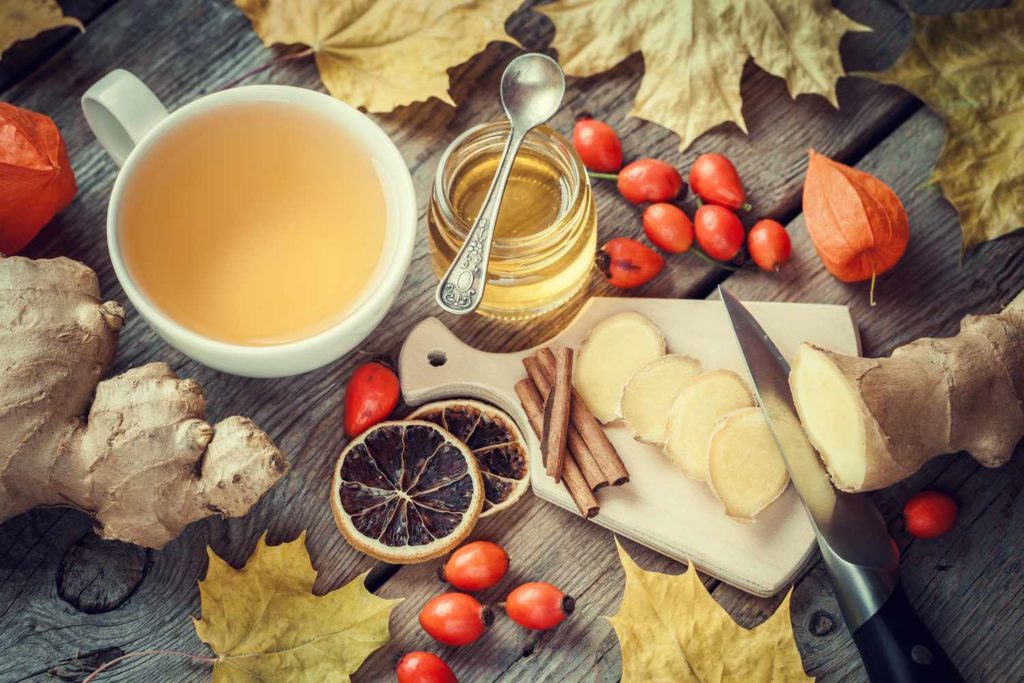How To Treat A Common Cold Naturally: A Comprehensive Guide for Optimal Health and Wellness
How To Treat A Common Cold Naturally: Discover effective remedies for treating the common cold without medication. Learn about natural options like staying hydrated, getting enough rest, consuming immune-boosting foods, using saline nasal sprays, gargling with salt water, and utilizing steam inhalation. These methods can help alleviate symptoms and promote faster recovery.

Introduction
Hey there, health-conscious readers! We all know how annoying and frustrating it can be to battle the common cold. It seems to strike at the most inconvenient times, leaving us feeling miserable and drained. But here’s the good news: you don’t always need to rely on over-the-counter medications to find relief. In fact, treating the common cold naturally can be just as effective and gentler on your body.
In this comprehensive guide, we’ll dive into the world of natural remedies for the common cold, exploring various techniques and approaches to help you find relief and promote optimal health and wellness. So, if you’re ready to bid farewell to sneezes, sniffles, and congestion, let’s get started!
Before we jump into the remedies, let’s quickly refresh our knowledge about the common cold. We’ve all experienced it at some point, but it’s helpful to understand what we’re up against. The common cold is a viral infection that primarily affects the upper respiratory system, including the nose and throat. It’s usually caused by different strains of the rhinovirus, and it spreads easily from person to person through droplets in the air or by touching contaminated surfaces.
Now, you might be wondering why bother with natural remedies when there are countless cold medications readily available at your local pharmacy. Well, there are several compelling reasons. First, natural remedies often come with fewer side effects compared to pharmaceutical options. They work in harmony with your body, supporting its natural healing processes without overwhelming it with chemicals.
Secondly, natural remedies address not only the symptoms but also the underlying causes of the common cold. They focus on bolstering your immune system, which plays a vital role in fighting off infections and speeding up recovery. By taking a holistic approach, you’re not just alleviating the discomfort temporarily but also supporting your overall well-being.
Throughout this article, we’ll explore a wide range of natural treatments, from lifestyle adjustments to herbal remedies and immune-boosting foods. These approaches have stood the test of time and have been embraced by cultures around the world for centuries.
So, whether you’re tired of relying on over-the-counter medications or simply looking for a gentler way to treat the common cold, this guide will equip you with valuable insights and practical tips. Get ready to empower your body’s natural defenses and embark on a journey towards a healthier, cold-free life!
Now that we have a clear understanding of our mission, let’s delve into the specifics of the common cold and explore how natural remedies can help us combat it effectively.
Understanding the Common Cold
The common cold is a viral infection that affects millions of people worldwide each year. Understanding its causes, symptoms, and stages can help you effectively treat and manage the condition.
What is the Common Cold?
The common cold is an upper respiratory tract infection caused by various viruses. Rhinoviruses are the most common culprits, but other viruses, such as coronaviruses and respiratory syncytial virus (RSV), can also cause colds. These viruses enter your body through the nose, eyes, or mouth, and they spread easily from person to person, especially in crowded places or close quarters.
How Does the Common Cold Spread?
The common cold spreads primarily through respiratory droplets when an infected person coughs, sneezes, or talks. You can contract the virus by inhaling these droplets or by touching contaminated surfaces and then touching your face. The virus can survive on surfaces for several hours, making it important to practice good hygiene and cleanliness.
Cold vs. Flu: Understanding the Difference
While the common cold and the flu (influenza) share some similar symptoms, they are caused by different viruses and have distinct characteristics. Colds are generally milder and primarily affect the nose and throat, whereas the flu can cause more severe symptoms and affects the entire body. It’s essential to differentiate between the two to determine the most appropriate treatment.
Duration and Stages of a Typical Cold
The common cold typically follows a predictable course, progressing through different stages. While individual experiences may vary, the stages of a cold generally include:
- Incubation period: The time between exposure to the virus and the onset of symptoms.
- Initial symptoms: Often characterized by a sore throat, congestion, sneezing, and mild fatigue.
- Peak symptoms: The period when symptoms are most severe, including nasal congestion, runny nose, cough, headache, and mild body aches.
- Recovery: Symptoms gradually subside, and the body begins to heal. This stage may last several days to a week.
It’s important to note that the duration of a cold can vary, with some lasting as little as a few days and others persisting for up to two weeks or longer.
By understanding the nature of the common cold, its mode of transmission, and the different stages it goes through, you can better prepare yourself to tackle the infection. In the next sections, we will explore natural remedies and lifestyle adjustments that can help alleviate symptoms, prevent further spread, and promote a quicker recovery.
Boosting Immune System Health

A strong immune system is key to warding off the common cold and other illnesses. By adopting certain lifestyle habits and incorporating immune-boosting supplements, you can enhance your body’s natural defense mechanisms. Here are some practical tips for improving your immune system health:
Lifestyle tips for enhancing immune system function
Maintaining a healthy immune system requires a holistic approach that encompasses various aspects of your lifestyle. Consider implementing the following habits to support optimal immune function:
- Balanced diet and proper hydration
- Fill your plate with a rainbow of fruits and vegetables rich in vitamins, minerals, and antioxidants.
- Include immune-boosting foods like citrus fruits, berries, leafy greens, and cruciferous vegetables.
- Stay hydrated by drinking an adequate amount of water throughout the day.
- Regular exercise and physical activity
- Engage in moderate-intensity exercises, such as brisk walking, jogging, or cycling, for at least 30 minutes a day.
- Exercise helps improve blood circulation, which allows immune cells to travel more efficiently throughout the body.
- Aim for a combination of cardiovascular workouts, strength training, and flexibility exercises to maintain overall fitness.
- Quality sleep and stress management
- Prioritize getting sufficient sleep to support your immune system. Aim for 7-8 hours of restful sleep each night.
- Establish a consistent sleep schedule and create a relaxing bedtime routine to promote better sleep.
- Manage stress through techniques like deep breathing exercises, meditation, yoga, or engaging in hobbies you enjoy.
- Adequate intake of vitamins and minerals
- Ensure you’re getting enough essential nutrients that support immune health, such as vitamin C, vitamin D, zinc, and selenium.
- Incorporate a variety of foods in your diet that are rich in these nutrients or consider taking supplements under professional guidance.
Herbal supplements to support immune health
In addition to adopting a healthy lifestyle, certain herbal supplements can provide an extra boost to your immune system. Here are some popular options:
- Echinacea: Widely used to prevent and treat the common cold, echinacea is believed to enhance immune function and reduce the severity and duration of cold symptoms. It’s available in various forms, including capsules, extracts, and teas.
- Elderberry: Known for its antiviral properties, elderberry has been used for centuries to combat respiratory infections, including the common cold. It can be consumed as a syrup, lozenge, or capsule.
- Astragalus: This herb is highly regarded in traditional Chinese medicine for its immune-stimulating properties. Astragalus supplements are believed to strengthen the immune system and protect against respiratory infections.
- Garlic: In addition to its culinary uses, garlic possesses natural antimicrobial properties. Incorporating fresh garlic or garlic supplements into your diet may help boost your immune system.
It’s important to consult with a healthcare professional or a qualified herbalist before starting any new supplements to ensure they are safe and appropriate for you.
The role of probiotics in preventing colds
Probiotics are beneficial bacteria that contribute to a healthy gut microbiome. They play a crucial role in supporting the immune system and may help prevent the common cold. Consider the following points regarding probiotics:
- Choose probiotic-rich foods: Include foods like yogurt, kefir, sauerkraut, kimchi, and kombucha in your diet to introduce beneficial bacteria into your gut.
- Probiotic supplements: If you’re not consuming enough probiotic-rich foods, you can opt for high-quality probiotic supplements. Look for products that contain a diverse range of bacterial strains.
- Consult a healthcare professional: If you have specific health concerns or are on medications, it’s advisable to seek advice from a healthcare professional before starting probiotic supplementation.
Remember, while these lifestyle adjustments and supplements can support immune health, they are not a guarantee against catching a cold. However, they may help reduce the severity and duration of symptoms, allowing for a faster recovery.
By adopting these immune-boosting habits and incorporating natural supplements, you’ll be better equipped to ward off the common cold and maintain overall well-being. In the next section, we’ll delve into effective natural remedies for relieving cold symptoms and promoting faster recovery.
Natural Remedies for Cold Relief

When it comes to treating the common cold naturally, there are a variety of remedies that can provide relief from the symptoms and support your body’s healing process. Here are some effective natural remedies to consider:
Hydration and Steam Therapy
One of the simplest yet most important remedies for cold relief is staying hydrated. Drinking plenty of fluids helps to thin mucus secretions, making it easier to clear your nasal passages and relieve congestion. Opt for warm liquids like herbal teas, clear broths, and warm water with lemon and honey to soothe your throat.
Another excellent way to alleviate congestion is through steam therapy. Breathing in warm, moist air helps to loosen mucus and reduce nasal congestion. Fill a bowl with hot water, place a towel over your head, and lean over the bowl to inhale the steam. You can also take a hot shower or use a humidifier to add moisture to the air in your living space.
Nasal Irrigation and Saline Solutions
Nasal irrigation, also known as nasal rinsing or nasal douching, is a technique that involves flushing out the nasal passages with a saline solution. This process helps to remove irritants, thin mucus, and reduce congestion. You can use a neti pot, squeeze bottle, or nasal spray to administer the saline solution.
To prepare a saline solution at home, mix a teaspoon of salt with a pinch of baking soda in a cup of distilled or sterilized water. Tilt your head to the side, pour the solution into one nostril, and let it drain out through the other nostril. Remember to use sterile equipment and follow proper instructions for nasal irrigation.
The Power of Honey, Ginger, and Lemon
Honey, ginger, and lemon are natural ingredients known for their medicinal properties and soothing effects on cold symptoms.
Honey has antimicrobial and anti-inflammatory properties that can help relieve sore throat and cough. Add a teaspoon of raw, organic honey to a warm herbal tea or simply consume it directly for its soothing benefits. Note that honey should not be given to children under the age of one due to the risk of botulism.
Ginger has been used for centuries to treat various ailments, including colds. It has anti-inflammatory and antioxidant properties that can help reduce inflammation and boost the immune system. Prepare a ginger tea by steeping fresh ginger slices in hot water for 10 minutes, then strain and enjoy the aromatic and comforting beverage.
Lemon is packed with vitamin C, which is known to strengthen the immune system and reduce the duration of cold symptoms. Squeeze fresh lemon juice into warm water, add a teaspoon of honey if desired, and sip on this immune-boosting concoction throughout the day.
Herbal Teas and Their Soothing Effects
Herbal teas are not only comforting and hydrating but can also provide relief from cold symptoms. Here are a few herbal teas that are particularly beneficial:
- Chamomile tea: Known for its calming properties, chamomile tea can help soothe a sore throat and promote relaxation.
- Peppermint tea: The menthol in peppermint tea can help clear nasal passages, relieve congestion, and ease headaches.
- Echinacea tea: Echinacea is a popular herb believed to stimulate the immune system and reduce the severity and duration of cold symptoms.
- Elderberry tea: Elderberry has antiviral properties and is known to support the immune system. Drinking elderberry tea may help alleviate cold symptoms and shorten their duration.
Essential Oils for Congestion and Relaxation
Certain essential oils can be beneficial for relieving congestion and promoting relaxation during a cold. Here are a few examples:
- Eucalyptus oil: This oil has a cooling effect and can help open up the airways, making it easier to breathe. Add a few drops to a diffuser or inhale the scent from a tissue.
- Peppermint oil: Peppermint oil can provide a refreshing and cooling sensation, which can help ease nasal congestion. Dilute a few drops in a carrier oil and massage it onto your chest or inhale it.
- Lavender oil: Lavender oil is known for its calming properties and can help promote relaxation and better sleep during a cold. Add a few drops to a diffuser or sprinkle a few drops on your pillow before bedtime.
Rest and Relaxation for Faster Recovery
Last but certainly not least, rest and relaxation are crucial for a faster recovery from a common cold. Your body needs time to heal, and getting enough rest allows your immune system to work efficiently. Make sure to prioritize sleep and take breaks throughout the day to conserve energy and support your body’s healing process.
Remember, while these natural remedies can provide relief and support during a common cold, it’s essential to listen to your body. If your symptoms worsen or persist for an extended period, it’s advisable to consult a healthcare professional for further guidance.
Stay tuned for the next section on Foods and Nutrients for Cold Recovery, where we’ll explore the dietary strategies and specific nutrients that can help you bounce back quickly from a cold.
Foods and Nutrients for Cold Recovery

When it comes to treating the common cold naturally, the food we eat plays a vital role in supporting our immune system and facilitating a speedy recovery. Incorporating certain foods and nutrients into our diet can help alleviate symptoms and strengthen our defenses against the cold virus. Here are some key dietary considerations for cold recovery:
Vitamin C rich foods and their benefits
Vitamin C is widely recognized for its immune-boosting properties. It helps stimulate the production of white blood cells, which are crucial for fighting off infections. Including foods rich in vitamin C can provide the necessary support for your immune system during a cold. Some excellent sources of vitamin C include citrus fruits (such as oranges, lemons, and grapefruits), strawberries, kiwis, bell peppers, and broccoli. Try to consume these fruits and vegetables either raw or lightly cooked to retain their vitamin C content.
Zinc and its role in fighting the common cold
Zinc is an essential mineral that aids in the proper functioning of our immune system. It has been shown to reduce the duration and severity of cold symptoms. Foods rich in zinc include oysters, lean meats (such as beef and chicken), legumes (such as chickpeas and lentils), nuts, and seeds. Adding these foods to your diet can provide a natural boost to your immune system and promote faster recovery from a cold.
Anti-inflammatory foods for symptom relief
During a cold, inflammation in the nasal passages and throat can cause discomfort and exacerbate symptoms. Consuming anti-inflammatory foods can help alleviate these symptoms and provide relief. Include foods such as turmeric, ginger, garlic, and dark leafy greens in your meals. These foods contain compounds with anti-inflammatory properties that can help soothe irritated airways and reduce congestion.
Incorporating garlic and onions into the diet
Garlic and onions are not only flavorful additions to our meals but also offer remarkable health benefits. They contain compounds that have antimicrobial and immune-enhancing properties, which can aid in fighting off the cold virus. Including garlic and onions in your cooking can provide additional support to your immune system and help alleviate cold symptoms.
The importance of hydration and warm fluids
Staying hydrated is crucial for overall health, and it becomes even more important when dealing with a cold. Drinking plenty of fluids helps keep your respiratory system moist and facilitates the thinning of mucus, making it easier to expel. Opt for warm fluids such as herbal teas, hot water with lemon and honey, or broths to soothe your throat and alleviate congestion. Additionally, hot liquids can help relieve nasal congestion by promoting sinus drainage.
Remember, while these foods and nutrients can support your body’s natural healing process, they are not a cure for the common cold. It’s essential to maintain a balanced diet and incorporate these foods into your meals regularly to boost your immune system and reduce the severity and duration of cold symptoms.
In the next section, we will explore some lifestyle adjustments that can help prevent the common cold and minimize its impact on your overall well-being.
Lifestyle Adjustments for Cold Prevention
Preventing the common cold goes beyond just relying on natural remedies when symptoms arise. By making certain lifestyle adjustments, you can significantly reduce your chances of catching a cold and support your overall health and well-being. Let’s explore some practical strategies for cold prevention:
Hand Hygiene and Proper Sanitation Practices
Keeping your hands clean is one of the simplest and most effective ways to prevent the spread of the common cold. Make it a habit to wash your hands frequently with soap and water, especially before eating or touching your face. Proper handwashing involves lathering your hands with soap for at least 20 seconds, ensuring you cover all areas, including between your fingers and under your nails. Rinse thoroughly and dry your hands with a clean towel or air dry them.
If soap and water are not readily available, you can use an alcohol-based hand sanitizer with at least 60% alcohol content. Apply a generous amount to your palms, rub your hands together until dry, and make sure to cover all surfaces.
Avoiding Close Contact with Sick Individuals
The common cold is highly contagious and can easily spread from person to person through respiratory droplets. Avoid close contact with individuals who are currently sick with a cold to minimize your risk of catching the virus. If possible, maintain a distance of at least six feet from someone who is coughing or sneezing.
It’s also important to practice respiratory etiquette. Cover your mouth and nose with a tissue or your elbow when you cough or sneeze to prevent the spread of droplets. Dispose of used tissues properly and wash your hands immediately afterward.
Maintaining a Clean and Well-Ventilated Living Space
Creating a clean and healthy environment at home and in your workplace can help reduce the likelihood of catching a cold. Regularly clean and disinfect frequently touched surfaces, such as doorknobs, light switches, and countertops, using an appropriate disinfectant. Pay extra attention to areas that are prone to harboring germs.
Adequate ventilation is also crucial for preventing the spread of respiratory viruses. Ensure that your living space has proper airflow by opening windows or using air purifiers. Good ventilation helps remove stale air and airborne pathogens, reducing the risk of viral transmission.
Strategies for Minimizing Stress and Its Impact on Immunity
Chronic stress weakens the immune system, making you more susceptible to infections, including the common cold. Managing stress is therefore vital for maintaining a robust immune response. Incorporate stress-reducing activities into your daily routine, such as meditation, deep breathing exercises, yoga, or engaging in hobbies you enjoy. Prioritize self-care and allocate time for relaxation.
Additionally, getting regular exercise can help alleviate stress and strengthen your immune system. Aim for at least 30 minutes of moderate-intensity exercise most days of the week. Find activities you enjoy, such as brisk walking, cycling, dancing, or swimming, and make them a regular part of your routine.
Exercising Regularly to Support Overall Health
Regular physical activity not only helps reduce stress but also enhances overall health and strengthens your immune system. Engaging in exercise regularly can boost the production of antibodies and white blood cells, which play a crucial role in fighting off infections.
Choose activities that you enjoy and that suit your fitness level. Whether it’s going for a jog, attending a fitness class, or playing a sport, aim for a mix of cardiovascular exercise and strength training to reap the full benefits. Remember to start slowly if you’re new to exercise and gradually increase the intensity and duration as your fitness improves.
By implementing these lifestyle adjustments, you can significantly reduce your risk of catching the common cold and support your overall health and wellness. Remember, prevention is always better than cure, and a holistic approach to maintaining a strong immune system is key to staying healthy.
When to Seek Medical Attention

Knowing when to seek medical attention during a common cold is crucial for your well-being. While most colds resolve on their own within a week or two, there are instances where professional medical advice is necessary. Here are some important red flags and warning signs to watch out for:
A. Persistent High Fever:
If your fever persists for more than three days or reaches 102 degrees Fahrenheit (39 degrees Celsius) or higher, it’s recommended to consult a healthcare professional. A prolonged high fever may indicate a more severe infection or underlying health issue.
B. Severe or Worsening Symptoms:
If your cold symptoms worsen significantly after the first few days or become increasingly severe, it’s advisable to seek medical attention. This could include worsening chest congestion, persistent coughing, severe headache, or intense body aches.
C. Difficulty Breathing:
If you experience difficulty breathing, shortness of breath, or chest pain, it’s essential to seek immediate medical help. These symptoms could indicate a more serious respiratory condition or complications such as bronchitis or pneumonia.
D. Persistent Earache or Sinus Pain:
If you develop a severe or persistent earache, sinus pain, or pressure that is not relieved by over-the-counter remedies, it’s advisable to consult a healthcare professional. These symptoms may indicate an ear or sinus infection, which may require specific medical treatment.
E. Excessive Fatigue or Weakness:
If you feel overwhelmingly fatigued or weak, unable to carry out your daily activities, it’s important to consult a healthcare professional. Unusual exhaustion can sometimes be a sign of a more severe infection or an underlying health condition.
F. Pre-existing Medical Conditions:
If you have pre-existing medical conditions such as asthma, diabetes, heart disease, or a weakened immune system, it’s wise to seek medical advice at the onset of cold symptoms. People with underlying health conditions are more susceptible to complications from the common cold and may require additional care.
Remember, these guidelines are not meant to replace professional medical advice. If you have any concerns or questions about your symptoms, it’s always best to consult a healthcare professional.
By being aware of these warning signs, you can make informed decisions about when it’s appropriate to seek medical attention during a common cold. Early intervention and proper medical guidance can help prevent complications and ensure your speedy recovery.
How To Treat A Common Cold Naturally Conclusion
In conclusion, treating the common cold naturally is not only effective but also promotes overall health and wellness. By adopting a holistic approach to cold treatment, you can support your immune system, alleviate symptoms, and recover faster.
Throughout this comprehensive guide, we’ve explored various natural remedies and lifestyle adjustments for how to treat a common cold naturally. From boosting your immune system through healthy habits and herbal supplements to incorporating hydration, steam therapy, and nutrient-rich foods, there are plenty of strategies you can implement to combat the common cold naturally.
It’s important to remember that natural remedies can be used in conjunction with medical treatments and should not replace professional advice. If your symptoms worsen or persist, or if you have underlying health conditions, it’s crucial to consult a healthcare professional for appropriate guidance.
By understanding when to seek medical attention, you can ensure that you receive timely care and address any potential complications. Trust your instincts and don’t hesitate to reach out to a healthcare provider if you experience severe symptoms or if you have concerns about your well-being.
Ultimately, embracing a holistic approach to health extends beyond just treating the common cold. By adopting healthy habits, supporting your immune system, and prioritizing self-care, you can enhance your overall well-being and reduce the frequency and severity of future illnesses.
Remember, prevention is key. Practicing good hand hygiene, maintaining a clean living environment, and taking steps to minimize stress can significantly reduce your risk of contracting a cold in the first place.
So, the next time you find yourself reaching for over-the-counter medications, consider the power of natural remedies and lifestyle adjustments. By treating the common cold naturally, you not only support your body’s innate healing abilities but also promote long-term health and wellness.
Here’s to a winter season filled with vibrant health and a strong, resilient immune system!
How To Treat A Common Cold Naturally Frequently Asked Questions
FAQs (Frequently Asked Questions) about Treating a Common Cold Naturally:
Q1: Can natural remedies really help treat a common cold?
A: Yes, natural remedies can play a significant role in treating a common cold. While they may not cure the cold itself, they can help alleviate symptoms, boost the immune system, and promote faster recovery. Natural remedies such as herbal teas, steam therapy, hydration, and rest can provide relief and support your body’s healing process.
Q2: Are there any specific foods or nutrients that can help in treating a common cold?
A: Absolutely! Certain foods and nutrients can aid in cold recovery. Vitamin C-rich foods like citrus fruits, berries, and leafy greens can boost immune function. Zinc, found in foods like nuts, seeds, legumes, and whole grains, can help shorten the duration of a cold. Anti-inflammatory foods like ginger, turmeric, and garlic can reduce symptoms, while warm fluids like herbal teas and broths can soothe a sore throat and congestion.
Q3: How important is rest in treating a common cold naturally?
A: Rest is crucial when it comes to treating a common cold naturally. Giving your body time to rest and recover allows your immune system to focus its energy on fighting the virus. Aim for adequate sleep and take breaks throughout the day to conserve your energy. Avoid overexertion and listen to your body’s signals for rest and relaxation.
Q4: Can I combine natural remedies with over-the-counter medications for cold relief?
A: It is generally safe to combine natural remedies with over-the-counter medications, but it’s always best to consult with a healthcare professional or pharmacist before doing so. Some natural remedies, like herbal supplements or certain teas, may interact with certain medications. Additionally, it’s important to follow the recommended dosage guidelines for any over-the-counter medications and natural remedies to ensure safe and effective usage. Consulting with a healthcare professional can help you determine the best approach for your specific situation.
